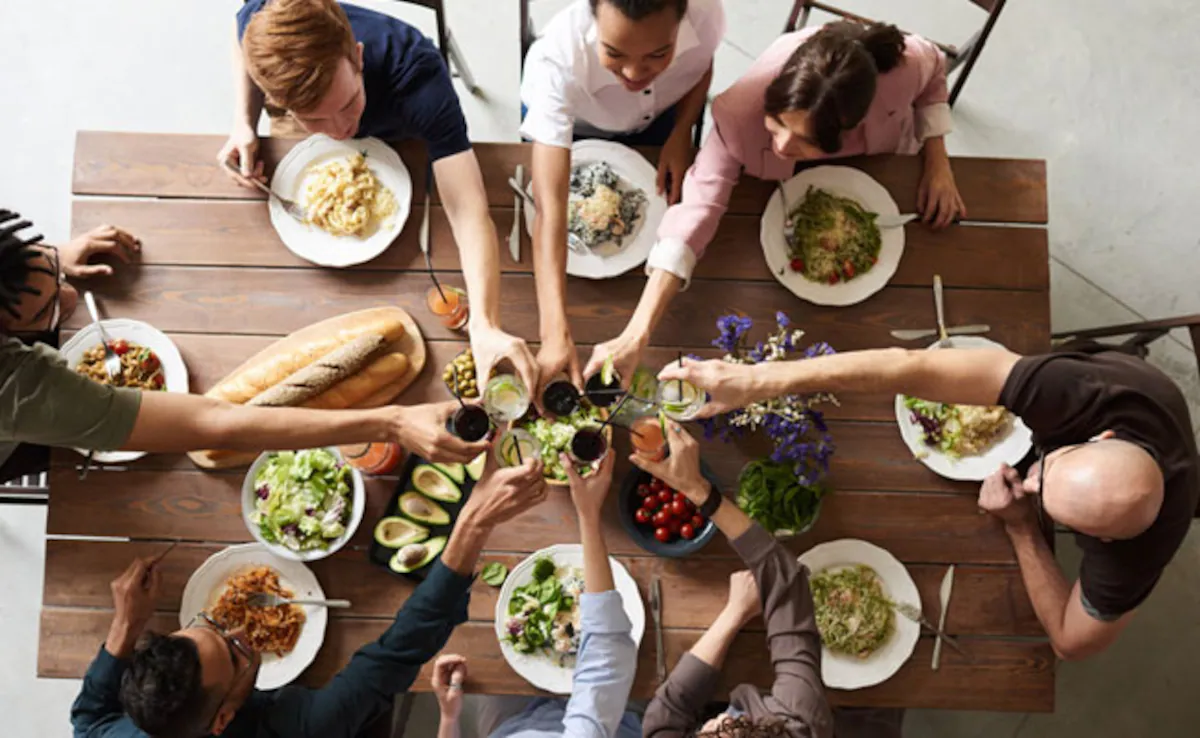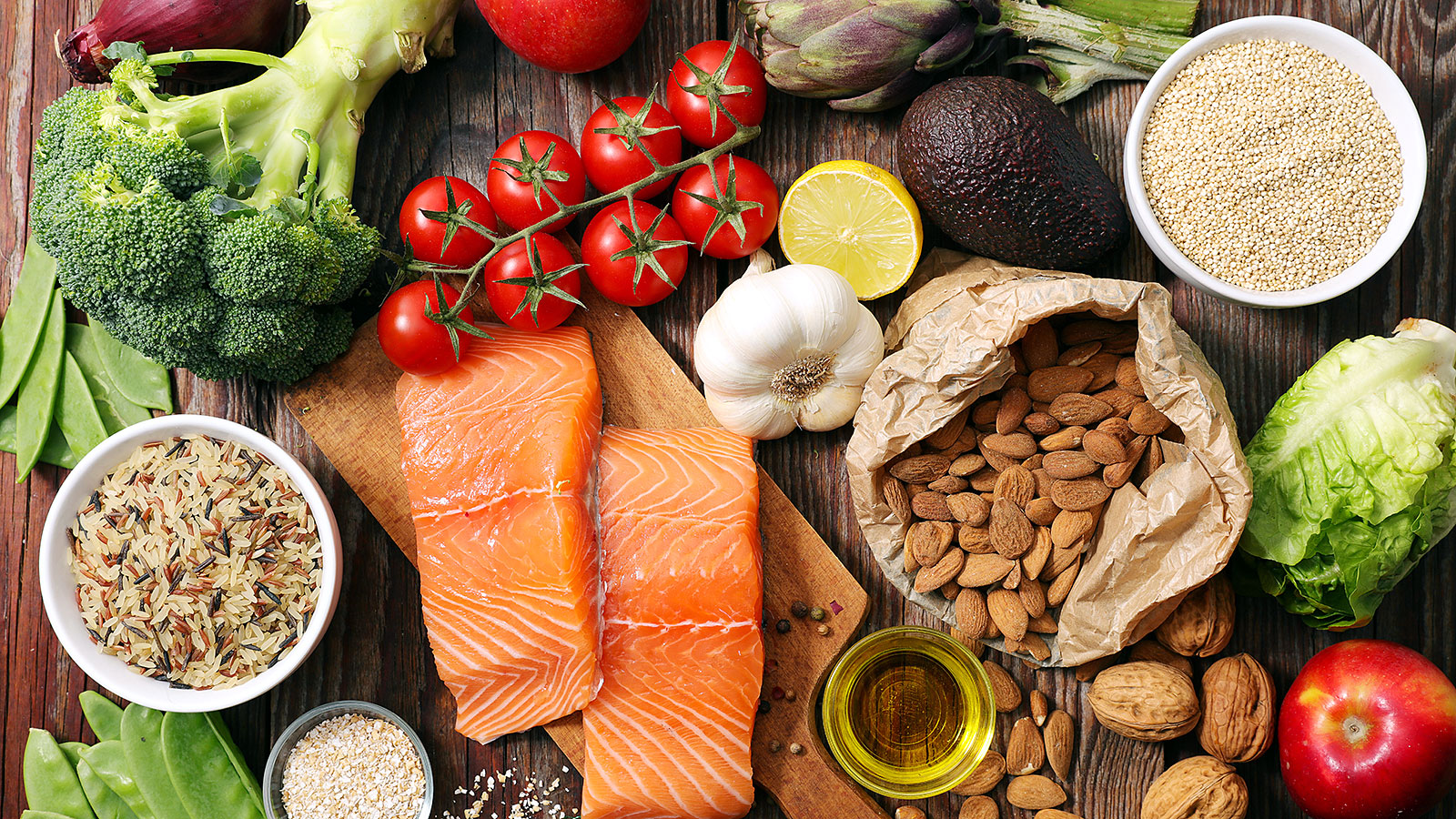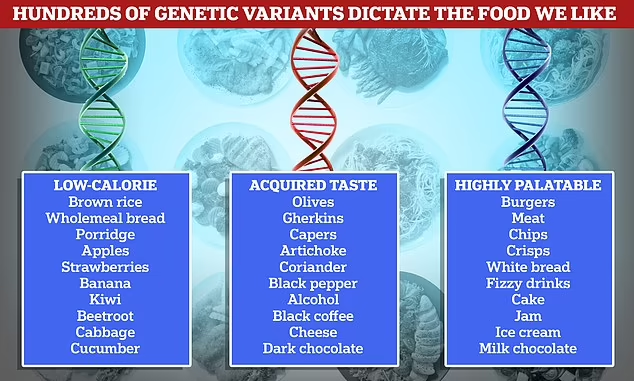Do you have a sweet tooth? Can't handle the spice? Blame your genes!
- Replies 2
There is more at play than just cultural preferences and individual sense of taste when it comes to why some people enjoy particular foods while turning up their noses at others.
Science says that the reason people like some foods and don't like others has nothing to do with culture, taste buds, or how much food they ate as a child.
Instead, it has to do with their genes.

Science indicates people's food preferences have little to do with culture, taste receptors, or how much they ate as children – it's actually genetic. Credit: Swirlster.
The study, which was published in the journal Nature Communications, found hundreds of genetic differences that are linked to certain foods, including ones that can make you like or dislike oily fish, avocados, chillis, and other foods.
Scientists from the University of Edinburgh and Human Technopole, Milan, looked at more than 150,000 people and whether they liked 137 different foods and drinks based on their genes.
The researchers found 401 genetic differences that affected what people liked to eat. Many of these variations affected more than one food-liking trait, while others only affected one food.
For example, some genetic variations were linked to liking only salmon, while other groups of variations made people like oily fish or fish in general.
The research team created a so-called 'food map' that illustrates how participants' preferences for different food categories and flavours are influenced by related genetic variations.
The map shows that there are three main groups of foods that are related genetically.

People's tastes in food are affected by their genes. Credit: Ladders.
Meat, dairy products, and sweets, which are high in calories and flavour, are in one group. Alcohol and pungent vegetables are in another, and fruits and vegetables, which are naturally low in calories, are in the third.
The researchers found that the three different categories of foods all shared genes that are known to be connected with different health characteristics.
For example, the same genetic variations that are linked to obesity and less physical activity also affect how tasty foods are.
This is also true whereby the genes that make people more active also make them more likely to enjoy fruits and vegetables.
And a higher preference for 'acquired' tastes is linked to a healthier cholesterol profile, more physical activity, and a higher chance of smoking and drinking.

The 'food map' shows that there are three main groups of foods that are related genetically. Credit: Daily Mail Australia.
The researchers were shocked to discover genetic variations in food preferences within the same category. They assumed, for example, that genetic variations associated with enjoying vegetables would be stable across all sorts of vegetables, implying that people who liked one vegetable would also like the others.
Instead, they found that there was not much of a link between the genes for cooked and salad vegetables and the genes for vegetables with stronger flavours, like spinach and asparagus.
Lastly, the team found little connection between the genes linked to high-calorie foods and the other two groups. This suggests that liking extremely tasty food is caused by biological processes that are separate from those linked to high-calorie foods.
Experts say that by learning more about what makes people choose certain foods, their research could help make healthier and more popular types of food, improve dietary habits, and maybe even lead to medicines that help people who are finding it hard to lose weight properly.
The bottom line is, we can't always choose what we want to eat. This research might help find ways to help people change their diets to reach certain health goals, but for now, it's a great way to get out of eating something you don't like.
So there you have it, folks! Enjoying chocolate might just be in your genes; don't be too hard on yourself if you find you can't always say 'no.' Just be sure that you're not going overboard and if you have any concerns, speak with your GP about a meal plan.
As always, stay safe and healthy, members!
Science says that the reason people like some foods and don't like others has nothing to do with culture, taste buds, or how much food they ate as a child.
Instead, it has to do with their genes.
Science indicates people's food preferences have little to do with culture, taste receptors, or how much they ate as children – it's actually genetic. Credit: Swirlster.
The study, which was published in the journal Nature Communications, found hundreds of genetic differences that are linked to certain foods, including ones that can make you like or dislike oily fish, avocados, chillis, and other foods.
Scientists from the University of Edinburgh and Human Technopole, Milan, looked at more than 150,000 people and whether they liked 137 different foods and drinks based on their genes.
The researchers found 401 genetic differences that affected what people liked to eat. Many of these variations affected more than one food-liking trait, while others only affected one food.
For example, some genetic variations were linked to liking only salmon, while other groups of variations made people like oily fish or fish in general.
The research team created a so-called 'food map' that illustrates how participants' preferences for different food categories and flavours are influenced by related genetic variations.
The map shows that there are three main groups of foods that are related genetically.
People's tastes in food are affected by their genes. Credit: Ladders.
Meat, dairy products, and sweets, which are high in calories and flavour, are in one group. Alcohol and pungent vegetables are in another, and fruits and vegetables, which are naturally low in calories, are in the third.
The researchers found that the three different categories of foods all shared genes that are known to be connected with different health characteristics.
For example, the same genetic variations that are linked to obesity and less physical activity also affect how tasty foods are.
This is also true whereby the genes that make people more active also make them more likely to enjoy fruits and vegetables.
And a higher preference for 'acquired' tastes is linked to a healthier cholesterol profile, more physical activity, and a higher chance of smoking and drinking.
The 'food map' shows that there are three main groups of foods that are related genetically. Credit: Daily Mail Australia.
The researchers were shocked to discover genetic variations in food preferences within the same category. They assumed, for example, that genetic variations associated with enjoying vegetables would be stable across all sorts of vegetables, implying that people who liked one vegetable would also like the others.
Instead, they found that there was not much of a link between the genes for cooked and salad vegetables and the genes for vegetables with stronger flavours, like spinach and asparagus.
Lastly, the team found little connection between the genes linked to high-calorie foods and the other two groups. This suggests that liking extremely tasty food is caused by biological processes that are separate from those linked to high-calorie foods.
Experts say that by learning more about what makes people choose certain foods, their research could help make healthier and more popular types of food, improve dietary habits, and maybe even lead to medicines that help people who are finding it hard to lose weight properly.
The bottom line is, we can't always choose what we want to eat. This research might help find ways to help people change their diets to reach certain health goals, but for now, it's a great way to get out of eating something you don't like.
So there you have it, folks! Enjoying chocolate might just be in your genes; don't be too hard on yourself if you find you can't always say 'no.' Just be sure that you're not going overboard and if you have any concerns, speak with your GP about a meal plan.
As always, stay safe and healthy, members!







